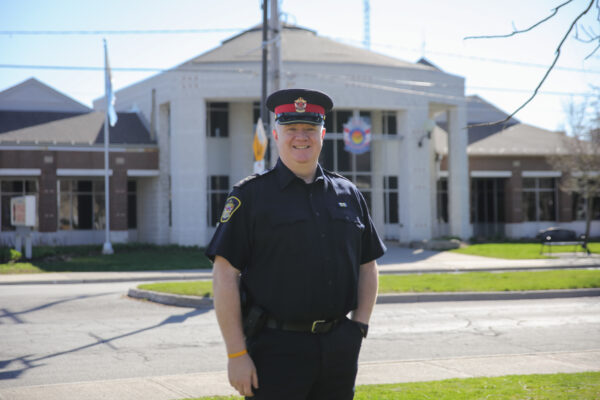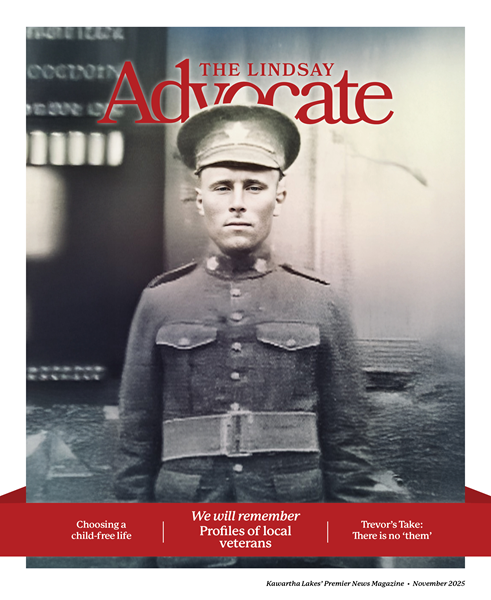Local police undecided on involvement in federal gun buyback program

The federal government announced late last month that they are moving forward with their gun buyback program. Police forces in Kawartha Lakes have been scrambling for more information about how the process will operate and what their role might be in implementing it before they make the decision about whether to participate in the collection of banned and prohibited firearms.
In Kawartha Lakes, residents are currently serviced by two different police forces, the Ontario Provincial Police (OPP) and the Kawartha Lakes Police Service (KLPS), neither of which has made a decision about participating in the federal government scheme at time of publication.
In an exchange of emails with Kawartha Lakes Weekly, KLPS Chief Kirk Robertson shared his current thoughts on the issue.
“I have not had any discussions with the federal government representatives regarding the details of the program, including what role the police will have in it, who will fund it and the requirements each police service must meet to be part of the program. I believe those issues are still being fine tuned. Until I have clarity about the program and how it will work, I cannot make a decision on whether KLPS will participate in it. For now, I will continue to monitor the program’s development.”
An email request for comment from the Kawartha Lakes OPP detachment was forwarded to their Corporate Communications Bureau in Orillia because the issue of the gun buyback relates to the OPP as a whole rather than strictly being a local issue.
“We are engaged in ongoing consultations with the Ministry of the Solicitor General,” Erin Cranton from OPP Corporate Communications wrote,” to determine the OPP’s involvement in the Government of Canada’s Assault-Style Firearms Compensation Program.”
In a widely distributed press release, Federal Public Safety Minister Gary Anandasangaree stated the government position clearly on the need for the gun buyback program and local police force participation.
“We are serious about removing assault-style firearms from our streets, limiting the devastating effects of firearm violence and making Canada safer. These assault-style firearms are largely designed to kill people, not for hunting and sport shooting and have no place in Canada.”
Since 2022, the federal government has banned or prohibited more than 2,000 weapons preventing legally registered owners from using them for any reason including hunting and target shooting, selling them to other individuals or exporting them to other markets including the United States.
Since the early days of this program, former Prime Minister Justin Trudeau and current Prime Minister Mark Carney have suggested that there would be cash compensation paid by the government in return for these weapons being turned in to local police stations where they will be ticketed for destruction.
With that in mind, the federal government has earmarked almost a quarter of a billion dollars for monetary compensation to be paid to both gun shops and individual owners once their banned or prohibited guns have been turned in.
In most communities across Canada the program will be implemented by the Royal Canadian Mounted Police (RCMP). In areas which have provincial, regional or municipal police forces currently keeping the peace, the federal government is expected to invite all of those departments to become involved as the contact, collector and administrator for the gun buyback program in the region they are already serving.





This is an unpopular program, especially in many of Canada’s rural and Conservative communities. One of the biggest barriers to its success is a lack of police buy-in. The leaked conversation between Minister Anandasangaree and one of his constituents in which he expresses his own reservations about the program illustrate just how widely unpopular it is, even in cabinet. Some pundits say they expect the Carney administration to quietly axe it or to implement some sort of weak version involving no enforcement elements.
Leave law abiding firearms owners alone. Go after real criminals. This entire policy is a flop and huge waste of tax dollars.
The level of stupidity of those who think criminals will hand in the gun they paid 5-10x market value for to acquire is mind boggling. Implement LONG mandatory sentences to anyone caught with an illegal gun and watch gun crime levels drop. And I’m not talking about a 1 year sentence or 2 years or 5 years. I’m taking about a 20 year year mandatory sentence to anyone caught with an illegal gun. No parole. No plea deals. 20 years in prison. Gun crime will end overnight. Silly buyback programs, ‘hug a thug’ parole policies , shorter prison sentences for people from certain ethnic backgrounds, are all proof that we don’t live in a serious country. Canada has become pathetic.